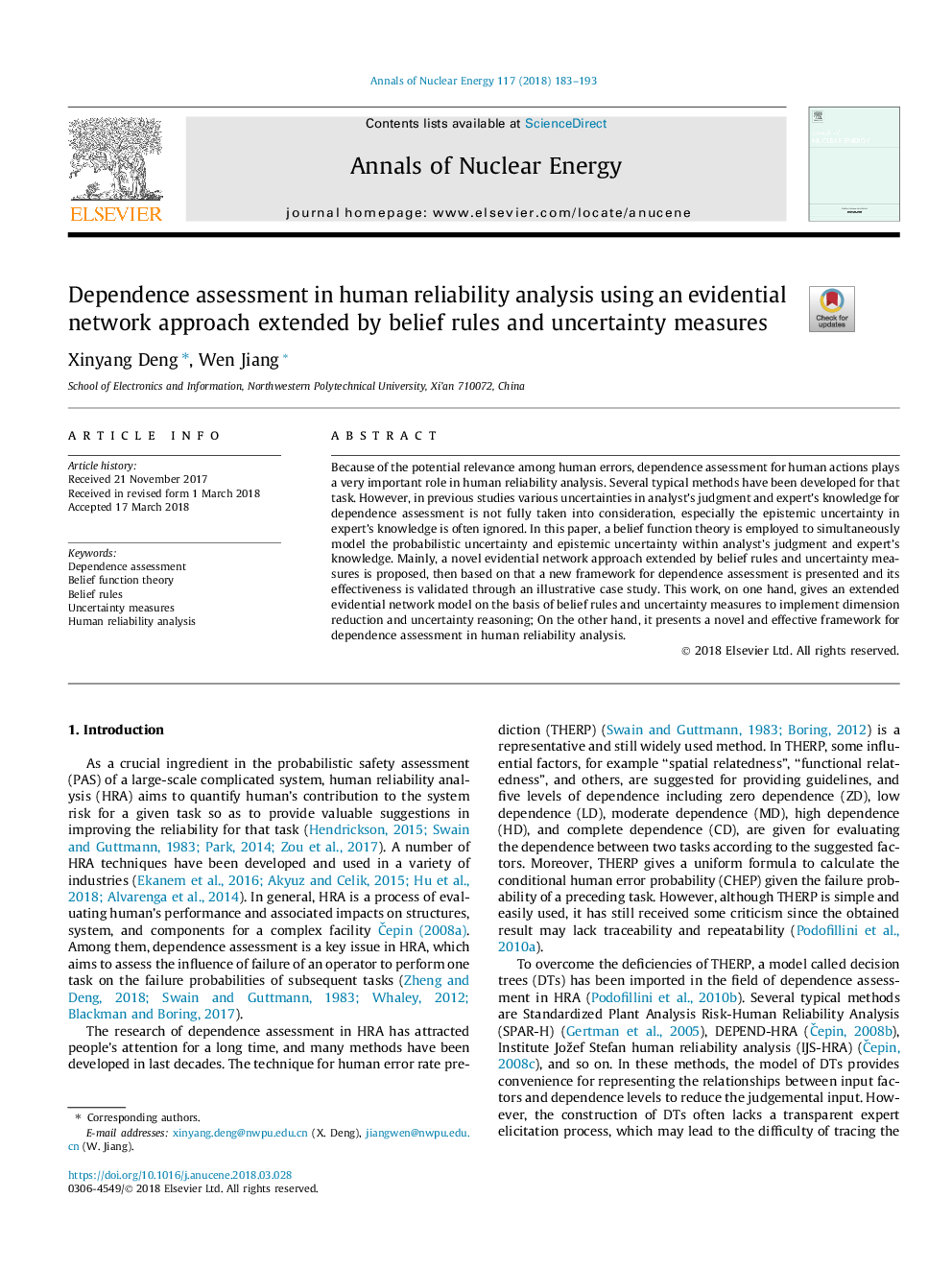| Article ID | Journal | Published Year | Pages | File Type |
|---|---|---|---|---|
| 8067006 | Annals of Nuclear Energy | 2018 | 11 Pages |
Abstract
Because of the potential relevance among human errors, dependence assessment for human actions plays a very important role in human reliability analysis. Several typical methods have been developed for that task. However, in previous studies various uncertainties in analyst's judgment and expert's knowledge for dependence assessment is not fully taken into consideration, especially the epistemic uncertainty in expert's knowledge is often ignored. In this paper, a belief function theory is employed to simultaneously model the probabilistic uncertainty and epistemic uncertainty within analyst's judgment and expert's knowledge. Mainly, a novel evidential network approach extended by belief rules and uncertainty measures is proposed, then based on that a new framework for dependence assessment is presented and its effectiveness is validated through an illustrative case study. This work, on one hand, gives an extended evidential network model on the basis of belief rules and uncertainty measures to implement dimension reduction and uncertainty reasoning; On the other hand, it presents a novel and effective framework for dependence assessment in human reliability analysis.
Related Topics
Physical Sciences and Engineering
Energy
Energy Engineering and Power Technology
Authors
Xinyang Deng, Wen Jiang,
